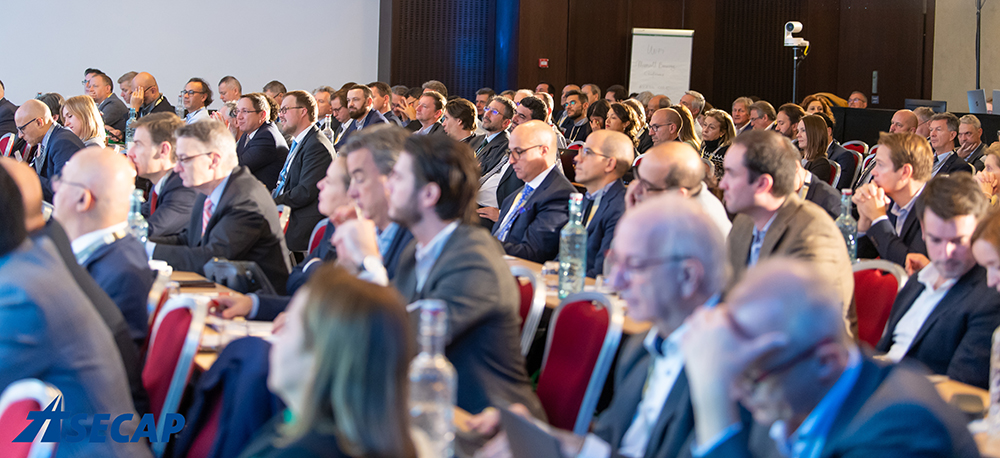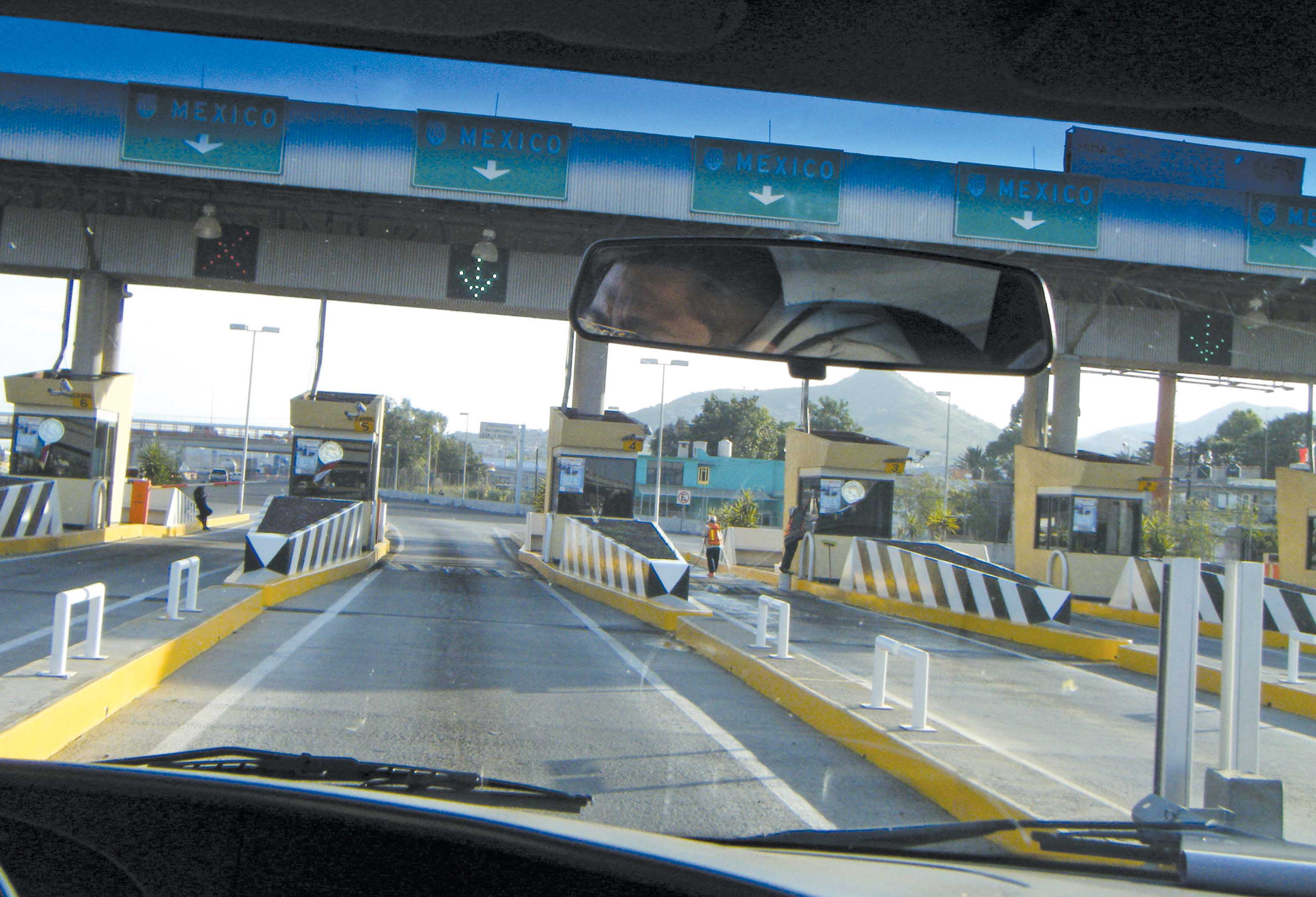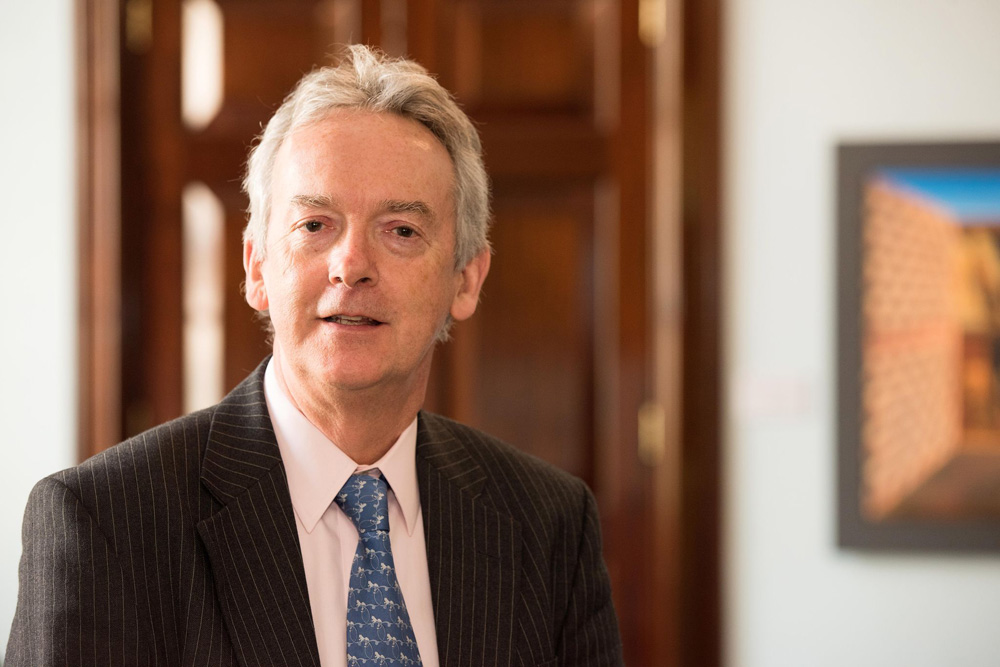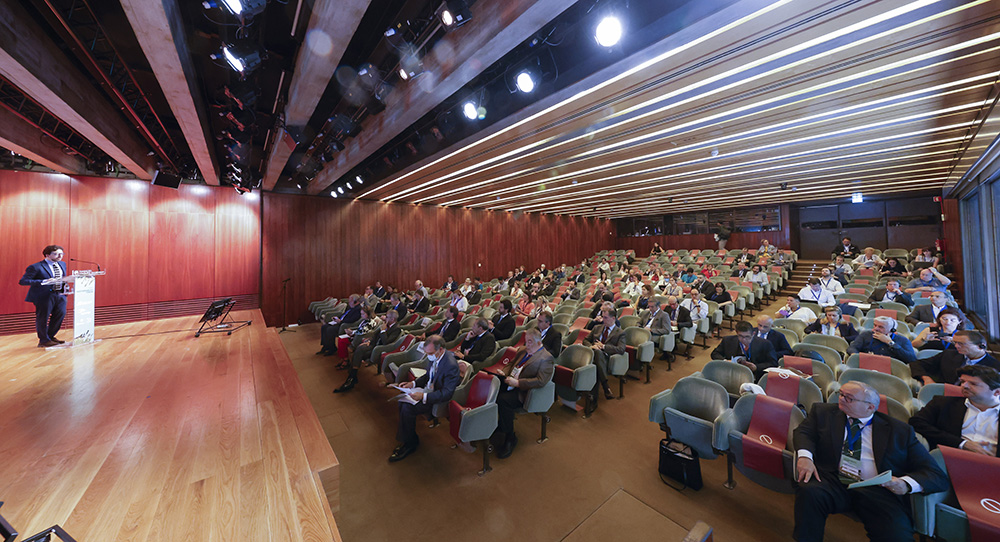
The European Green Deal aims to make Europe the first climate-neutral continent by 2050. It’s an ambitious target that will “require the full mobilisation of our industry”. That was the key message from Asecap, the European association of toll road operators, at its first International Sustainability Forum in Lisbon, Portugal, this summer.
Operators are going to have to invest in new mobility frameworks that will contribute to the decarbonisation of road transport. This sounds good in theory – but is there a credible plan?
“Forget technology, it will not solve our problems,” says Professor Jose Manuel Viegas, chairman of the TIS.pt consultancy. “What we really need to do is rethink everything.”
Speaking at the forum, Viegas told Europe’s leading toll road operators: “It is clear that we need to change the whole business model of our sector. We need to rethink who pays what, and what their rights are. We need to think about how to make it [road use] fairer, safer, and more efficient.”
And we need to do it now.
He was preaching to the converted. Asecap has 135 member companies in 20 different countries operating, maintaining, and managing a network of more than 86,000km of tolled motorways across Europe … assets that can clearly be used to lead the industry to a whole new way of working.
Sustainable mobility
“Tolled motorways are in the perfect position to drive behavioural change,” Viegas told the forum, adding that Asecap members can help to “push drivers and companies into adopting new ways of using our roads”.
“Motorways must be able to respond competently to the growing demands of society,” he said, in terms of “sustainable mobility, improved fluidity, improved efficiency, and improved safety. Action will be needed to improve clean mobility too, in sync with EU commitments”.
Europe’s main motorway providers will also need to encourage “positive discrimination in favour of electric vehicles,” the professor predicted, along with “the adoption and the cooperation of shared mobility solutions and better public transport options … especially in large [urban] agglomerations.”
It’s time to face the facts, Viegas said: “We cannot expect different outcomes if values and rules stay the same.”
But what does this mean in practice? How can Asecap’s member companies start to change things on the ground, day-to-day?
Use intelligent traffic systems to encourage more “communication between vehicles and [the highway] infrastructure,” said Viegas. Do this “to avoid the limitations of human drivers”.
Employ external control measures to keep things moving and use commands from the traffic manager to encourage better traffic flow. Operators should “make the best of equipment already installed [signage, markings] for digital detection” and get ready for driverless vehicles.
There will be the “inevitable sharing of highways by vehicles with different degrees of intelligence / driving automatism,” and the industry needs to put in place separate lanes for driverless vehicles.
And get ready to punish those who don’t want to comply, suggested Viegas: ensure there is a “loss of capacity and fluidity for the less sophisticated”.
Decarbonising transport
The fuel situation is another layer of complexity: “It should be expected that the urgency of decarbonising the economy and transport will increase due to the most recent IPCC [Intergovernmental Panel on Climate Change] report on climate change and tensions in the oil market as a result of the sanctions on Russia,” he added.
The implications for Asecap’s toll highway providers could well be governments demanding significant help in achieving decarbonisation. It is all going to get more and more urgent.
Make no mistake, Viegas warned: “There will be political pressure to accelerate” change, not least because the IPCC report, for the first time made it clear that governments around the world now think that carbon-capture solutions are inevitable.
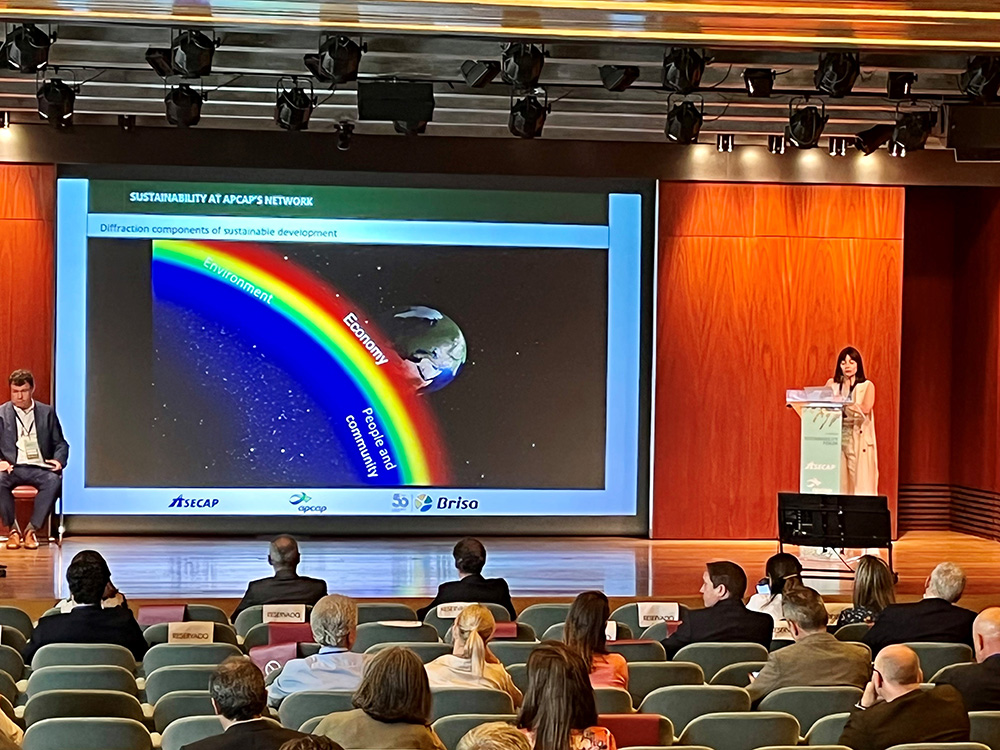
“The first thing is to have electric charging stations complying with European legislation, but we’ll also need to have some dynamic charging options too [charging on the move]. Very likely, the electrification of road vehicles will not occur fast enough to cope with the pledges already made at the EU level. Motorways must be able to respond competently to the growing demands of society in all domains of sustainable mobility, and of their customers in terms of fluidity.”
The industry should also expect addendums to the grantor and concessionaire contracts that include all these objectives. “A negative impact is almost guaranteed” in terms of public opinion, says the professor. It’s not going to be easy.
Among a host of other expert speakers, António Nunes de Sousa, Asecap president, drew attention to an upcoming policy report from the association which will set out key performance indicators designed to show how Europe’s toll road operators can make progress, and meet the challenges set out by the Paris Agreement, the EU Green Deal, United Nations sustainable development goals and Vision Zero.
“The objective of the report is to show that we are not only road infrastructure managers, but we also respond to the needs of sustainable mobility from a broader perspective,” said de Sousa. The report will be published for the Annual Asecap Days on 23-25 November 2022 in Brussels.
Helping digitalisation
Speaking on behalf of the French Presidency of the European Union, Jerôme Audhui, talked about getting the right sort of charging infrastructure in place at the roadside. The EU is now working hard “to cover the TEN-T [Trans-European Transport] network so that European citizens can travel all around Europe using recharging pools”.
Audhui said the text has been approved with the obligation in 2025 to cover the core network with recharging pools located every
60km, with a certain power output – and that the Council has agreed to cover the entire TEN-T network by 2030.
But that’s not all. “The EU Council has also agreed to cover the core TEN-T network by 2030 with hydrogen refuelling stations every 200km with a strong emphasis on urban nodes,” he continued. “And, regarding the ITS Directive, member states will be obliged to ensure that a certain number of databases will be made available to help the digitalisation of road transport.” This follows on from the revision of the Eurovignette Directive during the first half of 2022, said Audhui: “We are trying to use road pricing to incentivise the users. Eurovignette has been designed as a kind of toolbox with several tools that we can use with CO2 modulation, especially for heavy-duty vehicles.”
Putting legislation to one side, Pedro Vinagre, board director at international energy giant EDP Commercial, told the forum to keep things down to earth and realistic. “There are still some challenges ahead, one of the most critical being range anxiety,” he said. “Many people feel that they will only embrace e-mobility once vehicle charging takes two to three minutes, the same amount of time they would spend on refuelling their tanks with gas. We believe they are missing the point. We are not moving towards a binary state of fully-charged versus fully-discharged.”
We will always be charging in the future and he said EDP has been investing in many partnerships to deploy charging points at the places that are most convenient to the user and that fit into their routines.
“Once you go to the supermarket, you can expect to have appropriate charging points that charge your car within the 20-30 minutes you spend on this site,” Vinagre continued. “The same goes, for example, for hotels, where you can charge your car at night … and highways, where you will find fast-charging stations on your quick stop. Turning this into reality will require a lot of investment; interoperability to guarantee there are enough charging points deployed to secure long journeys; and efficient licensing to accelerate deployment.”
• Many slides and more details about the Sustainability Forum can be found under the Events tab at www.asecap.com
Asecap wants to see a resilient and sustainable road ahead
“In European countries, currently around 80% of passengers and 75% of freight are transported by road,” said Asecap in its introduction to the organisation’s first sustainability forum. “But road transport is one of the highest producers of greenhouse gases.”
Despite this, the COVID-19 crisis has demonstrated the resilience of the road. Roads make it possible to guarantee the supply of vital goods such as food and medicine. Road transport delivers daily life: “The climate and environmental emergency as well as the health and economic crises as consequences of COVID-19 impacts have put transport at the heart of the European agenda.”
More than ever, says Asecap, climate policy is the highest priority: “The European Green Deal reaffirms the Commission’s ambition to make Europe the first climate-neutral continent by 2050. The Paris Agreement adopted in 2015 sets out a global framework to avoid dangerous climate change impacts by limiting global warming to well below 2°C and pursuing efforts to limit it to 1.5°C.
“Achieving a climate-neutral continent will require the full mobilisation of industry stakeholders. And to meet these challenges, toll road infrastructure operators are investing in new mobility frameworks that will contribute to decarbonisation of road transport.”
The June 2022 Sustainability Forum was organised in co-operation with Apcap and with the support of Brisa.



